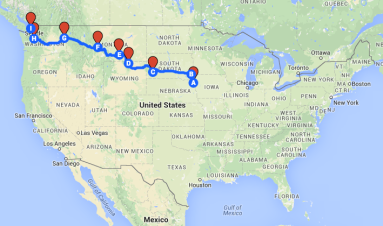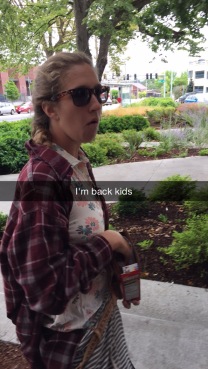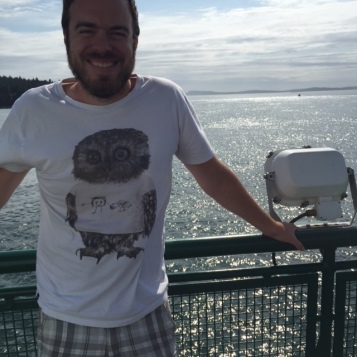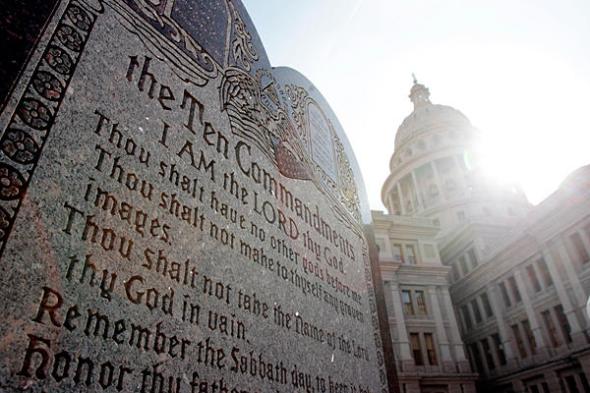Hey! Here’s a quick update of our lives if anyone wants to keep up. We’ve embarked on a journey of sorts, mostly engineered by Rune due to his need to see every inch of the world, which we’ve done a pretty good job of so far. One of our goals is to leave ourselves as much freedom as we can so we can do freelance work, read, and stay or leave a place as we please. We find camping pretty conducive to this lifestyle because unless we’re trying to camp in a National Park, we don’t need much planning involved. That’s been fun. Here’s the day to day:
August 3: We left Sioux City, Iowa for Sioux Falls, South Dakota for some reconnection with old friends and teachers.
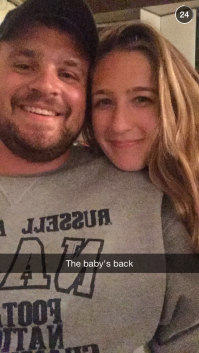
Thanks to hospitality all around, we’ve been coming and going from this nice place throughout the past time in Iowa (Thanks Kari & Lori!). Half way to Sioux Falls we realized we left our tent behind…but Dr. Cole kindly lent us a (6-person!) tent.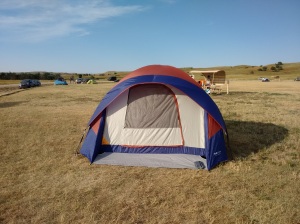
August 4: In the morning, we headed for the Badlands, which has been our longest drive yet (give or take 5 hours?). Of course, at least 10 people had told us about how South Dakota dramatically changes at Chamberlain, but nothing could have quite prepared us for the planet transplant that the Badlands is. All I can say is…Mars with Buffalo. Rune got pretty excited about something called Prairie Dog Town. We were also recovering from the shock of exchanging civilization for the hundreds of thousands of bikers now accompanying us on a pilgrimage to Sturgis, SD for the annual biker rally. They were surprisingly friendly. This was our first day camping, which went pretty well, although we hadn’t quite gotten to figuring out the food situation….so we headed to Wall, SD and enjoyed some Subway. There wasn’t water at our free campground, so we felt a lot like actual pioneers, who crossed the same path not so long ago in history.
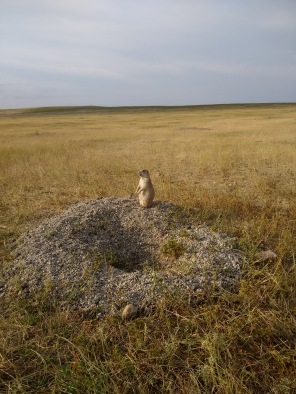
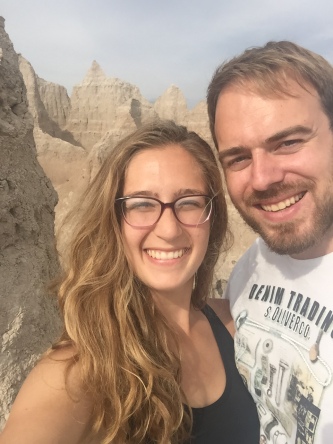
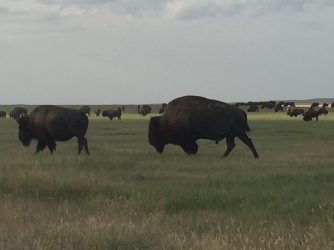
August 5: We ventured early to Mt. Rushmore where we saw the Black Hills and also a biker man propose to his biker lady (there were a lot of bikers). This day was a lot about figuring Rapid City out (a notable coffee shop called Alternative Fuels). We managed to track down a camping stove and some taco ingredients and headed back to camp to enjoy what would be the real excitement: a gigantic thunderstorm. We cooked in the tent as the rain and wind hammered the sides and threatened to uproot the tent. It lasted from our dinner until 2 in the morning and managed to collapse half the tent. We didn’t sleep much, and found out that the Badlands are basically a wind tunnel.

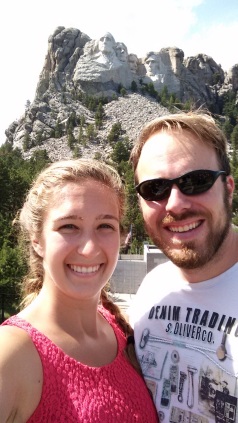
August 6: We woke up to a messy, half-collapsed lake of a tent (most of our stuff managed to stay magically dry). And spent the morning trying to clean and dry everything. Looking back now, I can’t believe how much smoother camping has gone since that day, which was definitely a low point in our belief that we could manage versus the weather. I blame my American Literature classes for the fact that during that thunderstorm, I couldn’t stop explaining to Rune the literary movement of Naturalism, in which some authors contended humans continue a futile struggle to control the world around them….anyway, we thought we were clever for finding clean and suitable showers along with the afternoon’s entertainment at the Rapid City Public Pool. In our bravest moment, we decided to drop on by the Sturgis Bike Rally out of curiosity. After about an hour, we felt like we had seen everything there was to see of Biker culture. Saying goodbye to the South Dakota, we trekked on through Wyoming to marvel at Devil’s Tower (which kept sneaking up behind me in the car’s mirror’s and scaring me like a suspiciously sentient landmark…. Let’s just say it’s weird and amazing and whoever named it is a genius, and I completely understand why Native people regard it as sacred land.
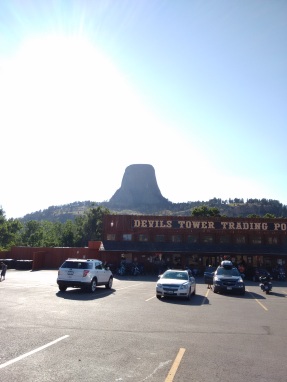

August 7: We left Sheridan Wyoming with hopes of Montana. Rune had his first Buffalo Wild Wings experience in Billings, (“it was good.”) and we spent most of the day looking at the horizon as we drove. Which, I must admit, was not something to complain about. When we got to our AirB&B in Paradise Valley, Montana (we were taking a short break from camping to dry out our stuff and renew our rugged spirits), we were greeted by a cowboy who gave us a giant, “historical replica” TeePee to ourselves. The guy gave us an enrapturing lecture on the volcano that is Yellowstone and got us pretty anxious to set up camp the next day on yet another strange planet: Yellowstone National Park. We caught a local beer in a nearby saloon (they call it that) and had a nice long talk with the bartender who gave us some advice on how to see wildlife but not get eaten by it.
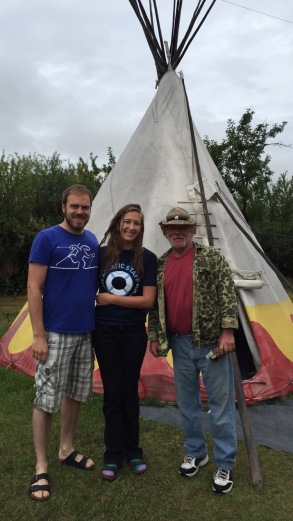
August 8: We finally set up camp in Yellowstone Park. We had to get there before 11 AM to get a spot in one of the park’s campgrounds, which we did (surprisingly) successfully. The campground was extraordinary and we spent most of the day setting up, getting organized, and pointing at birds and elk. The wildlife is not a joke in Yellowstone…it’s actually a semi-dangerous place, so we had a lot of rules to follow that involved keeping food in safe places and disposing of dish water in specific ways, etc. The punishment to breaking these rules could be an actual bear attack, so we were careful. We never saw any bears (happy & sad about that), but plenty of other wildlife. In the evening we jumped in a hot spring and hung out for way too long. It’s moments like those that make me argue with the Literary Naturalists.
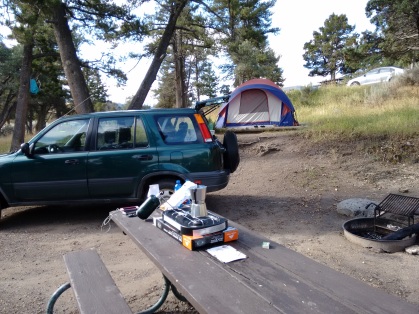
August 9: We took the lonngggg driving tour of Yellowstone Park, which can only be justified by pictures (if that). Rune’s favorite was Old Faithful (why?) and mine was the concept that we were hiking around an overdue underground volcano that could erupt at any moment surging the earth into the next ice age.
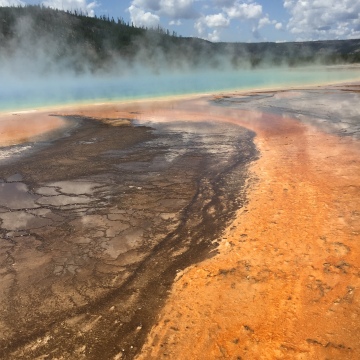
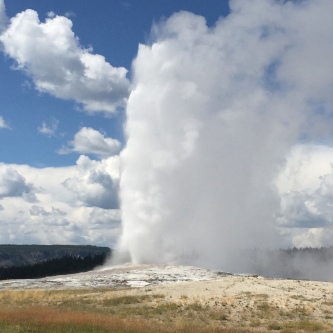
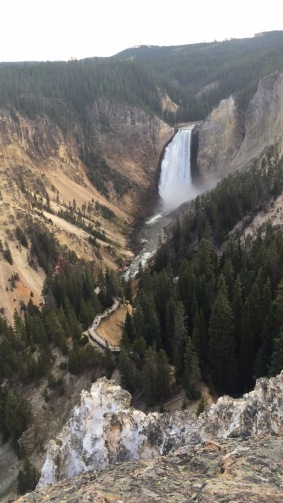
August 10: We splurged on a horseback riding tour, which was very worth it.
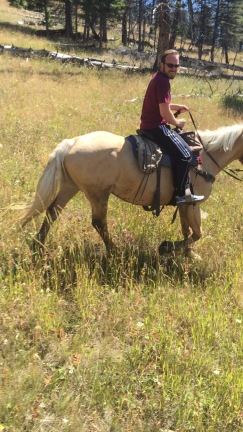
August 11: Saying goodbye to Yellowstone was sad, but we trekked through the rest of Montana to hang out in Bozeman and then Helena, which are extraordinary. We found so much local life (not to mention breweries everywhere) but the highlight was getting to the Nichols’ home, who welcomed us with Elk Spaghetti and a very enthusiastic history of Montana which completely won us over. Their mountain view didn’t hurt either.
Stay tuned if you’d like! We’ll be at it for a few more weeks and hopefully keeping good track.
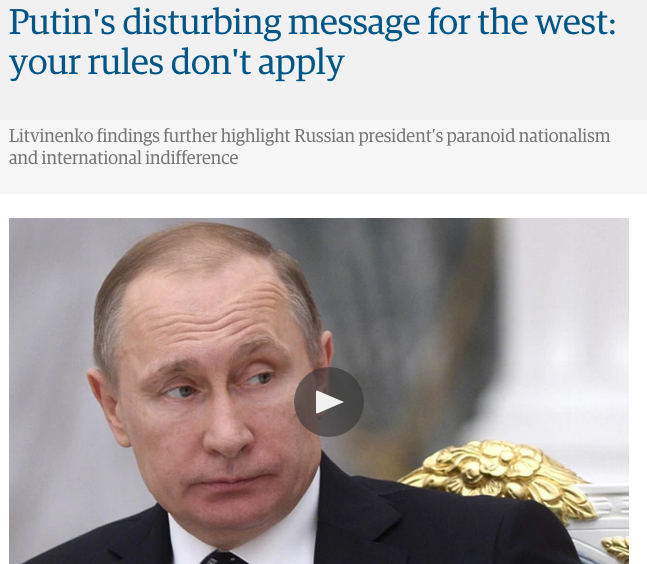 Prepare to be “disturbed,” Guardian readers. Putin has said something that will disturb you. Read on! The Guardian has slipped into the clickbait habits of some of its internet-born fellows like BuzzFeed, introducing the story with a cliff-hanger. In my experience, a hefty headline like this must lead to a let-down of a story. In an age of over-hype, I am exhausted. The same way we have all learned to identify a clickbait headline or an ad, we are beginning to know how to identify a tabloid: over-hype. What I want is straight-forwardness. Of course there will always be bias in news, but I predict (and hope for) a quick shift as readers learn to trust news and distrust tabloids. Tell me the news and tell it plain. Stop with the clickbait.
Prepare to be “disturbed,” Guardian readers. Putin has said something that will disturb you. Read on! The Guardian has slipped into the clickbait habits of some of its internet-born fellows like BuzzFeed, introducing the story with a cliff-hanger. In my experience, a hefty headline like this must lead to a let-down of a story. In an age of over-hype, I am exhausted. The same way we have all learned to identify a clickbait headline or an ad, we are beginning to know how to identify a tabloid: over-hype. What I want is straight-forwardness. Of course there will always be bias in news, but I predict (and hope for) a quick shift as readers learn to trust news and distrust tabloids. Tell me the news and tell it plain. Stop with the clickbait.